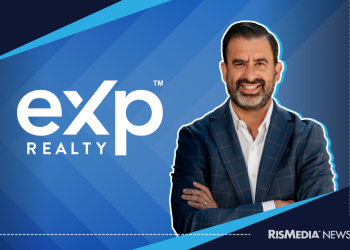(TNS)—If you’re fed up with high bank fees, poor service and low interest rates, you may want to switch banks.
There was a time when choosing a bank was not hard.
“You used to just decide if you wanted to get a toaster or a microwave when you opened a new account, or go to the bank with the most convenient branch,” says Mitchell Freedman, founder and head of MFAC Financial Advisors in Westlake Village, Calif.
But steep fees and strict rules abound, so comparison shopping is a must.
These questions can help you sort through the choices and find the bank that fits your needs.
How large a balance is needed to avoid fees?
A checking account that requires the customer to maintain a minimum balance to avoid monthly service fees doesn’t work for everyone. Let’s say you have a minimum balance requirement of $1,500. That’s pretty steep, especially if you’re paying bills and making everyday purchases from your checking account.
In addition to the monthly service fees, ask about other fees before you change banks. How much does the bank charge if you bounce a check? Is there a fee to close the account? What’s the charge to stop payment on a check? What’s the fee if you deposit a check from someone else that bounces?
“Be aware not only of the upfront price of opening an account, but of continuing requirements,” Freedman says. “Some accounts require a direct deposit or a recurring payment through their site to avoid monthly service fees.”
How high are the fees for out-of-network ATMs?
“Most banks and credit unions participate in a network of ATMs, but if you rely often on an ATM for withdrawals, you should check on the fee for using an out-of-network machine,” says Susan Weinstock, an expert in consumer financial protections and former director of a consumer banking project at The Pew Charitable Trusts.
“Usually there’s no fee for using one in your bank’s network, but your bank or credit union should disclose the fee it charges for using another network,” Weinstock says. “There’s also a fee from the ATM owner, and that will be disclosed on the ATM itself.”
Freedman says consumers who travel often may want to open an account with a national bank that offers ATMs around the country.
“ATM fees may be less important to people who don’t use them a lot or who choose a bank or credit union with an ATM convenient to their work or home,” Freedman says.
What are the overdraft protection options?
You hope you never have to rely on overdraft protection, but be sure you understand your options and their cost before you switch banks.
Weinstock says many consumers don’t understand that not signing up for overdraft protection can be a good thing. Your debit card will be declined or your check will bounce without it, but there’s no fee if you opt out of overdraft protection.
Overdraft fees for non-sufficient funds, or NSF, are big revenue for banks. People who overdraft regularly pay about $450 a year in overdraft fees, according to the Consumer Financial Protection Bureau.
“If you opt in for protection, the cheapest way to do it is usually to have funds transferred from a savings account, a line of credit or a credit card,” Weinstock says.
Consumers should compare the transfer fee, the overdraft penalty fee, the maximum number of times an overdraft penalty fee is applied per day, the minimum amount required to trigger an overdraft fee, and the extended overdraft penalty fee charged for each day the account is overdrawn.
“Overdraft protection is a double-edged sword,” Freedman says. “It can be terrific and enable you to lower your risk of a bounced check, but you could end up paying a high transaction fee and a hefty interest rate if you sign up for a line of credit.”
How soon are deposited funds available?
Some banks put a hold on certain types of deposits, but some deposits are credited instantly.
Federal Reserve regulations require that the first $200 of a non-“next-day” check be available the next business day after it’s deposited, but banks vary in how soon the rest of the deposit is available.
“Fund availability is extremely important, especially for people living paycheck to paycheck,” Weinstock says.
Some banks’ business day ends at 2 p.m.
“You need to check that information in their disclosure boxes,” Weinstock says.
Ask about the bank’s process for handling deposits and withdrawals. Most banks process a deposit first and then the withdrawals from the same day, but others credit the deposit last.
“Some banks handle the largest withdrawals before smaller ones that come in on the same day, which can make it more likely that you’ll overdraw multiple times,” Weinstock says.
How much interest is paid on deposit accounts?
Interest rates on deposit accounts are low, so some consumers may be tempted to skip this question. But Weinstock says you should find out whether your account pays interest.
“The problem is the interest rate changes often,” Weinstock says.
You can ask how often interest rates are changed and whether there are minimum balance or other requirements to earn interest.
Banks that try to attract more deposits will offer special high-interest accounts to customers who meet certain usage requirements such as multiple debit card transactions and direct deposit.
“Credit unions have been proliferating in recent years and often have lower fees and higher interest rates for deposits,” Freedman says.
Are mobile banking and online bill pay offered?
While most banks offer online bill-paying services, not all offer mobile banking. You need to determine how you use your bank to decide which features matter most to you. Some customers need a bank with longer branch hours because they need in-person services. Others want the option of doing everything online, Freedman says.
“While technology has made banking convenient, there’s also a higher risk of identity theft,” Freedman says. “Part of being a wise shopper should be to ask about what protection is in place against fraud. Some financial institutions will alert you to unusual activity, but with others, you may not know anything is wrong until you receive your bank statement.”
You may want to compare the mobile apps from one financial institution to another to see which ones are the most functional for your needs.
Are rewards programs offered?
Once you’ve asked about some of the basics such as bank fees, overdraft protection options and ATM fees, you may want to compare rewards programs available on some checking accounts and savings accounts. Some banks offer rewards only on their credit cards, while others also offer rewards to debit card users.
“You need to be honest with yourself as to what’s important to you and how you use your bank accounts,” Weinstock says. “Do you keep a cushion in your account or take it down to the last penny? Do you regularly have direct deposits made? These things will impact the type of account you choose and the financial institution you choose.”
If you qualify for a rewards program, Freedman recommends shopping for one that matches your interests before you switch banks.
©2017 Bankrate.com
Distributed by Tribune Content Agency, LLC
For the latest real estate news and trends, bookmark RISMedia.com.











